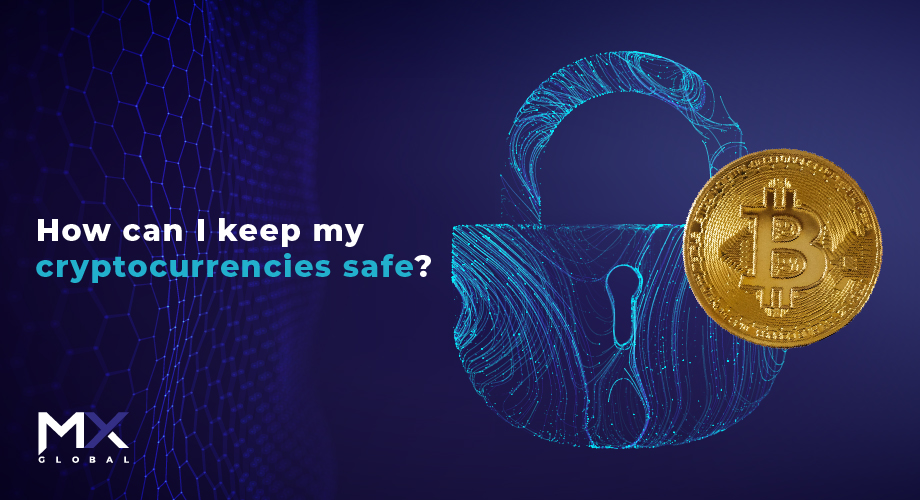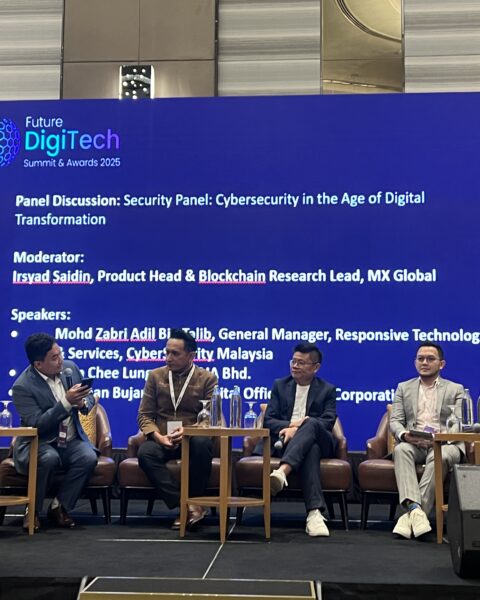The decentralized, secure peer-to-peer network is extremely difficult to hack or manipulate, which is a prominent aspect of blockchain technology and cryptocurrencies.
As a result, the most severe cybersecurity threats arise not from blockchain technology or cryptocurrencies such as Bitcoin itself, but rather from the aspects where we manage them: our smartphones, PCs, and laptops; the locations where we keep cryptocurrency wallets and keys; and the websites we use to buy or trade cryptocurrencies.
To put it another way, whatever you use as a “bridge” to connect to a blockchain-based network is vulnerable to attack. Here are some pointers on how to protect yourself against such flaws.
Be alert
People, humans like you and me, are said to be the weakest link in computer security. Even with all these security precautions at our fingertips, we must all tread cautiously and have a good sense of judgment when it comes to trustworthy sources and technologies.
This is essential for anything linked to the Internet, and it is especially important for cryptocurrencies. As if that wasn’t sufficient, there’s also the issue of money, and your assets can be stolen in the digital world without your knowledge. In order to ensure optimum protection of your crypto assets, we propose that you adopt a variety of behaviors and habits.
Maintain safe cyber practices
We all adore free wi-fi, so it’s tempting to check in whenever we get the chance. However, be sure that any network you are unfamiliar with is safe before using it. Risky and shady networks and websites might endanger any wallet you store on your phone or computer, as well as your savings.
Keeping your assets offline is typically recommended. If you must store a wallet on your smartphone or computer, make sure it is encrypted and contains just a small amount of money.
Updating your software is essential
Keep all of your software up to date, and apply updates as soon as they become available. Malware commonly attacks flaws in older versions of software and operating systems, so being prepared is vital. We strongly advise you to make software updates a habit.
Allowing automatic upgrades for crypto apps is not recommended. Bugs may exist in newly released versions. As a result, it is preferable to wait a few days to determine if a program is stable before installing it on your smartphone or computer. This comprises firmware upgrades suggested by blockchain corporations whose services you engage.
Make use of an encrypted password manager
Even if you are a casual internet user, you have most likely made hundreds of accounts for the many sites you use online. Let’s face it: you probably use the same password for your email, local online stores, and your preferred music streaming service. As a result, if someone discovers this one password, they have access to all of your accounts.
This issue may be efficiently addressed by ensuring that you create and use unique passwords for each website. You don’t have to memorize dozens or even hundreds of passwords, so don’t be bothered. It is actually rather simple to use unique passwords. All you have to do is save them all in an encrypted password manager like LastPass or Dashlane. Set up your encrypted password manager as soon as possible to make password management secure and simple.
Turn on Two-Factor Authentication (2FA) whenever possible
Using Two-Factor Authentication – commonly known as “Two-Approach Authentication” or 2FA for short – wherever feasible is another way to greatly reduce the chance of your accounts and valuables being compromised. This technology is low-cost and simple to adopt, and it adds an extra degree of protection to your Google account or any service that handles cryptocurrency.
You’ll be prompted to input a six-digit code in addition to your password every time you log in after installing an authenticator app to your phone and setting two-factor authentication for services or applications. As such, get your authenticator app, go through all of your services, applications, and wallets, and enable 2FA. It’s a simple act that has a big impact.
You may be tempted to avoid using a hardware wallet and instead keep your assets online for reasons of convenience or expediency. We do not encourage storing digital assets online, no matter how convenient it may be. Make it a point to get into the habit as soon as possible, and always utilize a hardware wallet.
We recommend hardware wallets from two vendors at this time: Trezor and Ledger. These two manufacturers have both been active in the crypto universe for a long time and are constantly improving the technological features of their goods.
To buy or sell cryptocurrency, go with a reputable platform
It is critical to select the best platform for your digital asset transactions in order to achieve optimum safety and simplicity. Once you’ve chosen to invest in cryptocurrencies, one of the first steps is to explore the finest platforms online to choose which is ideal for you.
The apparently limitless number of channels vying for your attention and business might be intimidating. There are, however, a number of characteristics that might help you limit down your choices.
You should seek out a platform that runs in a secure, regulated atmosphere with a qualified team. The platform should provide adequate liquidity, fair volumes, cutting-edge technology, and security, all while providing consumers with an easy-to-use, intuitive interface. You also want your preferred platform to handle both fiat money and cryptocurrencies in order to give dependable customer service.
MX Global is one of the most innovative and dependable digital asset platforms in Malaysia, ideal for both beginner and expert traders. The Securities Commission Malaysia (SC) has licensed MX Global to act as a Recognized Market Operator – Digital Asset Exchange (RMO-DAX) for cryptocurrency trading in Malaysia. In Malaysia, MX Global has the lowest cryptocurrency trading costs. We are now running a six-month promotional campaign with no trading costs from August 31st, 2021 (12.00 AM GMT+8) to February 28th, 2022 (11.59 PM GMT+8).
Related article | Zero % Trading Fees Promotional Campaign
Diversify risks to prevent single points of failure
Any single point of failure or attack is dangerous in terms of security. A single point of failure (SPOF) is a component of a system that, if it fails, disables the whole system. This implies you should generate many backups (for example, on various USB thumb drives), wallets, and passwords rather than just one.
We’d want to emphasize the need for cold storage or hardware wallets at this time. Anything with a perpetual internet connection, or simply a perpetual connection to your computer, should not be trusted. Despite the fact that we just discussed selecting a reliable website for buying and selling your coins, preferably trade online but do not keep online.
To establish liquidity on an exchange, you must keep some funds on the exchange. Consider how much you truly need for trading against how much you might want to trade. Remember Mt. Gox? You don’t want all of your crypto assets resting in an exchange wallet if that exchange is hacked. Even the most trustworthy exchanges are vulnerable to hacking.
To summarize, use a hardware wallet to keep your cash without being connected to the internet in order to reduce the risk of losing holdings when an exchange is hacked. Make a practice of adopting these security procedures and plan frequent checks to ensure that all of your transactions in the crypto realm are what they were supposed to be: efficient, secure, and confidential.
Are you ready to dive into cryptocurrencies?
Join us for more updates: Facebook | Telegram | Linkedin | Twitter
MX Global– Built in Malaysia for Malaysians
DISCLAIMER:
Any opinions, news, research, analyses, prices, or other information discussed in this presentation or linked to from this presentation are provided as general market commentary and do not constitute investment advice.
MX Global Team does not accept liability for any loss or damage, including without limitation to, any loss of profit, which may arise directly or indirectly from the use of or reliance on such information.









